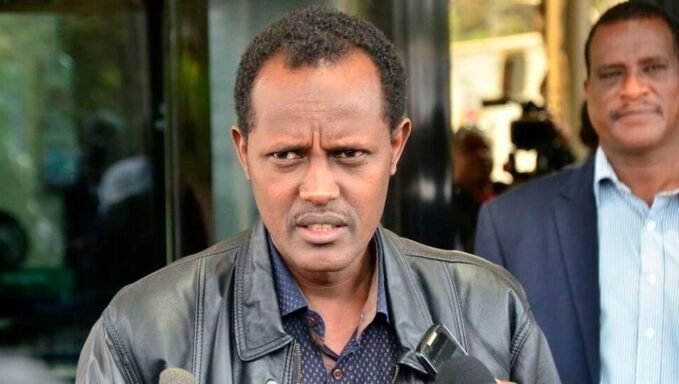Accused: Unveiling the Controversy Surrounding Halakhe Waqo and the CAK

Halakhe Waqo and the CAK
The Communications Authority of Kenya (CAK) has found itself engulfed in a storm of controversy following allegations of a flawed recruitment process for its top leadership. In this article, {Halakhe Waqo and the CAK} we delve into the intricacies of the situation, shedding light on the accusations and the individuals involved.
Flawed Recruitment Process
The compromised CAK Board allegedly conducted a recruitment process marred by irregularities, leading to the submission of a questionable list of candidates for the position of Director General.
Key Contenders
Among the candidates vying for the Director General role is Halakhe Waqo, a controversial figure with a history entangled in corruption scandals during his tenure at the Ethics and Anti-Corruption Commission (EACC).
Board Influence and Bribery Claims
Insider sources reveal that a member of the CAK Board, Mr. Abdi Mohammed, was allegedly involved in distributing large sums of cash during the recruitment interviews, raising concerns about the integrity of the selection process.
Waiver of Mandatory Requirements
The Board purportedly waived essential prerequisites, such as the requirement for a Leadership or Management certificate, to facilitate the inclusion of favored candidates in the shortlisting process.
Neglect of Legal Mandates
Despite legal stipulations mandating a Director General with competition experience, the Board reportedly disregarded these requirements, further fueling suspicions of favoritism and impropriety.
Allegations of Corruption
Numerous allegations of corruption surround the Board’s activities, including the improper claiming of mileage allowances and suspected nepotism in the recruitment process.
Related Content: Abdul Galgalo Munishram and Aden Duale’s Alleged Involvement in NHIF Multi-Billion Scandal
Past Scandals
Waqo’s tenure at the EACC was marked by controversy, with allegations ranging from bribery to incompetence, tarnishing the agency’s reputation and raising questions about his suitability for leadership roles.
Involvement in the Kemsa Scandal
Waqo’s alleged involvement in the Kemsa scandal, where taxpayers suffered significant losses due to fraudulent tender dealings, further underscores the gravity of the accusations against him.
Persistent Scrutiny
Despite facing parliamentary probes and public scrutiny, Waqo has repeatedly denied direct involvement in corrupt practices, yet lingering suspicions continue to shadow his professional endeavors.
Accountability and Transparency
Calls for accountability within the CAK echo the broader demand for transparency and integrity in public institutions, emphasizing the need for thorough investigations and stringent oversight mechanisms.
Upholding Ethical Standards
Rebuilding public trust in regulatory bodies like the CAK necessitates a commitment to upholding ethical standards, including merit-based recruitment processes and zero tolerance for corruption.
Ensuring Regulatory Effectiveness
Efforts to combat corruption and ensure regulatory effectiveness require the appointment of individuals with proven integrity and a track record of accountability, safeguarding the public interest and promoting good governance.
In conclusion, the controversy surrounding the CAK underscores the critical importance of ethical leadership and institutional integrity in safeguarding public trust and promoting accountability. As investigations unfold and scrutiny intensifies, the need for decisive action and principled governance remains paramount.


